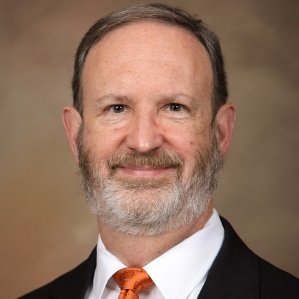Commentary on Joshua 24:1-3a, 14-25
The book of Joshua concludes with two final speeches (23:1-16; 24:1-24). The second takes place at Shechem, where God had first appeared to Abram in Canaan to reaffirm the promise of land (Genesis 12:7). There Abram built an altar, as did his grandson Jacob (Genesis 33:20), who buried the foreign gods of his household under the sacred tree (Genesis 35:2-4). Joshua had also built an altar at Shechem and had read the words of the instruction scroll of Moses, leading the people to renew the covenant (8:30-35).
Joshua now calls the people to return to this ancient place of worship to renew their covenant with the Lord once more. He first reports God’s words, recounting all the Lord’s gracious deeds, from the ancestral period (24:2-4) to the escape from Egyptian oppression (24:5-7) and the occupation of the land (24:8-13). Here, as throughout scripture, the covenant always rests on grace, on what God has already done. The indicative grounds the imperative: God’s prior action precedes any human activity. For the Israelites and for us, the good news of God’s delivering and sustaining love comes first, calling forth our response.
The Israelites are to reverence and serve the Lord, putting away foreign gods, just as their ancestor Jacob had done (Genesis 35:2-4). In a series of exchanges with the people, Joshua sharpens their choice: if they do not consider it best to serve the Lord, they must resolve to follow other gods (24:14-15). Those gods might be ones their ancestors served when they lived east of the Euphrates, “in the region beyond the River” (24:15), or the gods of the Amorites. But Joshua’s own choice is clear: he and his household will serve the Lord.
The people immediately pledge to serve the Lord and affirm the central confession of the Great Commandment, the Shema, repeating “The Lord is our God” (Deuteronomy 6:4), an affirmation that frames their response (24:17-18). They summarize what the Lord has said (24:2-13): the Lord brought them and their ancestors out of Egypt, protected them, and gave them the land (24:16-18). They will join Joshua and his household and serve the Lord.
But Joshua does not readily accept this initial pledge: the stakes are higher than a quick response can satisfy. The ritualized exchanges that follow heighten the gravity of the people’s choice and deepen their commitment. First, Joshua warns the people, focusing their attention on the character of the Lord whom they are promising to serve. Their experience of God as the Gracious One does not exhaust God’s character, for the Lord is also “a holy God” (24:19). As such, the Lord is set apart, different, unlike human beings or the gods of Mesopotamia or Egypt. Those gods may appear superhuman, but in the end, they are projections of human ideals of beauty and strength. They are part of a polytheistic system, dividing the world among them, and so they remain partial and competing centers of influence. The Lord who has redeemed Israel is not the same.
As a holy God, the Lord is also the Jealous One who passionately demands an unstinting loyalty, a steadfast devotion unmixed with other commitments. The covenant loyalty for which the Lord calls is absolute, admitting no competition. Israel’s choice is “either/or,” not “both/and.”
Despite Joshua’s warning, the people are not dissuaded. They respond a second time, emphasizing their resolve: “No, we will serve the Lord!” (24:21). Joshua then calls them as witnesses against themselves (24:22), a role the people willingly take up, reinforcing their commitment. In a final word of address, Joshua commands them to put away foreign gods, and for a third time the people pledge to serve the Lord (24:23-24). As a result, Joshua makes a covenant, writes the words in the book of the law, and sets up a memorial stone (24:25-27).
The experiences of the Israelites at Shechem may appear remote from ours. We do not gather by tribes for formal ceremonies. We do not shape our contracts on the patterns of ancient compacts between Hittite kings and their subjects. Yet we too are a people of choices, commitments, and covenants. We too must choose a focus that grounds our living. Too often we make that choice by default, without clear intention or reflection, but we make it nonetheless. Joshua’s words make that choice explicit, raising it to a level of conscious deliberation. What choices and commitments will shape our identities, our communities, and our destinies?
We may choose to center our lives on the power of the past, on family tradition or ancestral piety, longing for what once was. We may choose to shape our lives around the values of the prevailing consumer culture, trimming our horizons to the demands of market forces. Both choices ensnare us in the power of sin and death.
Or we may choose an identity not based on nostalgia or cultural accommodation but on the grace of a God of liberating love who leads us into a new era of freedom for life in community in a land of promise. The choice, as Joshua reminds us, is ours.
Yet we must make a choice, not once for all time, but again and again. Like the ancient Israelites, we need times and places that remind us of the gracious acts of God and call us back to our confession. We need hours of decision when we stake our lives anew on what matters most as we renew our promise to love and serve the Lord.
Effective preaching on this text will take its part as a service of worship that makes such a response possible. Preachers may easily find and develop resources for services of covenant renewal. The covenant service of John Wesley provides one example. So do services in the free church tradition where members covenant together and form congregations. Covenant and covenant renewal also lie at the heart of the celebration of baptism and communion that narrate the wonder of God’s grace that calls forth our response.



November 12, 2023